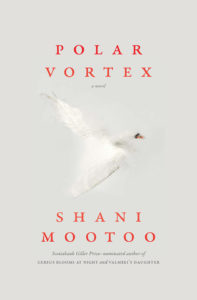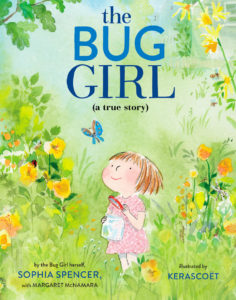March 20, 2020
Crocodile Dundee

The only thing I am properly equipped for at this time (except for keeping calm and staying home, of course) is writing about Crocodile Dundee, which I watched on Netflix two nights ago, and it was so terrible, but fascinatingly so, and also short. The strangest thing about the film is that I am sure that I was taken to see it in the cinema when I was seven, and while the movie is not inappropriate exactly, it doesn’t really seem really appropriate either. Similarly, while the movie is really short with lots of action scenes, nothing much really happens in it at all. It’s just so bad, and not just because the female lead is a journalist whose boyfriend edits the paper she works for and her dad is the owner. She’s late coming back from Australia, because she’s got a lead on a terrific story, about a guy in a remote territory who was attacked by a crocodile and survived. She meets him, and it turns out that he is very greasy, skin like leather, appears to be literally coated in dirt. So naturally, she develops sexual feelings for him, or kind of. Also, she treks through the jungle without a hat or bug spray, which I just couldn’t get over. She has a bodysuit for every occasion, as you do on a jungle trek, I suppose, and her bodysuit has a thong, which we learn when she takes off her skirt to bathe in the lagoon (where she gets attacked by a crocodile and Mick Dundee saves her).
And then she decides to invite him to come back to New York with her, because wouldn’t that make a fish out of water movie! Her boyfriend greets her at the airport, and it turns out that Mick Dundee doesn’t know how to use an escalator, and later he has the same problem with a bidet, and he doesn’t even know how to use a bed. Sue has absolutely no character development and her fundamental purpose in the film is to find Crocodile Dundee adorable in a childlike way, simultaneously sending confusing sexual signals, all the while having zero chemistry. And her boyfriend is so rude and unattractive! And the parties that she takes Mick to are totally weird and boring! And he keeps grabbing people’s genitals, and it’s supposed to be funny, but it’s horrifying. Also why does Sue have no friends?
The “that’s not a knife” scene lived up to my memory of its epicness, but everything else is terrible. In the movie’s final scene, Sue and Mick meet in a crowded subway station and to get to her, he hauls himself up to the rafters and literally walks across the crowd, stepping on people’s heads, and it’s supposed to be charming. It was not. The movie was awful, and yet somehow it was exactly what I needed.
March 17, 2020
On Being New to Handwashing

As I’ve written many times, I blog to make sense of the world—but I’m not quite ready for that yet in terms of how this crisis is unfolding, as I’m cycling through all the feelings at supersonic speed, and the ground underfoot just feels ever-shifting. We are not in a place to make sense of any this yet, but in the meantime, and in response to recent judgy internet memes, I want to write a frivolous explanation for one specific instance of poor personal hygiene.
And I’m talking handwashing, which has become all the rage these last few weeks, to the point where our hands are chapped and bleeding. Whatever it takes though to protect our health and that of others—SIGN ME UP. But yes, it’s true that obsessive handwashing is kind of a new thing for me. “I washed my hands before it was cool,” so goes the judgy meme, and I did too, I guess, at all the obvious moments, but never while singing Happy Birthday.
I have never been very squeamish about germs, which is good, because I have children, and when my daughter was two, she ate part of a cheese sandwich she found under a table in Glasgow. When I’d take my children for walks in their strollers, they liked to reach out and touch the garbage cans on the sidewalk as we strolled by. They licked subway poles, and the bottoms of shoes, and I’d read that scientific study about how picking your nose and eating it builds immunity, so I just decided to let it go.
And so washing our hands just wasn’t really a thing, unless maybe your fingernails were green, or you’d just gone to the bathroom, or had been finger painting, or digging in the dirt. Definitely after handling raw chicken, and usually before. Yes, I am gross, but “better gross than neurotic” was honestly my kind of slogan.
Of course, I’ve since gone over to the other side. Now I watch TV and see people shaking hands, touching their faces, and my heart starts palpitating. Ordering takeout and fetching the mail seems fraught. I am going to have to go out grocery shopping one of these days (we’re on Day 5 of Keep Calm and Stay Home) and the ideas honestly terrifies me. Potential contagion everywhere. I am washing my hands constantly, even though I don’t leave the house, as though lather was a kind of prayer, and maybe it is.
March 9, 2020
Gleanings

- How to be Sick and Single
- This was the era of travelling around Europe in a camper van and that’s what we were going to do.
- The ‘fetch’ from the bookshop in Plymouth was as exciting as collecting any book you’ve waited years for could be. I’d preordered and thus supposedly saved £7, except we drove an eighty mile round trip to get it, got stuck in a slow traffic jam for half and hour with the engine running, had to pay £2.80 to park the car, ended up needing sustenance in the M&S cafe and so I think came out of it in financial deficit. But at least I can say I was there on the dawning of the day.
- …what’s easy for us may be hard for other people. That talents and skills don’t always intersect.
- That time between eighteen and twenty-three was vulnerable and embarrassing and I’ve kept it private for no reason other than it was weird and messy and full of a soughing longing and despair, and because I hadn’t really lived in my own skin at that point, so that it hurts to look at it even now.
- It’s what both overwhelms and excites me about pottery, and life, how very much there is to learn.
- ALL THE THINGS that I spend my life trying to avoid in my own work. All the stuff I suggest authors don’t do. This book is STUFFED TO THE CEILING WITH ALL OF IT and it didn’t bother me once.
- That turtle toilet filled me with such irrational joy when it turned out so well! Who would ever think of such a thing? Who would ever make it?
- One of those mornings, the sky soft and promising after a few days of chilly rain and snow creeping down the mountain behind our house, one of those mornings when you turn to each other in bed, saying, Where did they go, the years?
- Quiet time is space our minds need to recharge also helping us to discover what matters most in our life.
- On #IWD2020 and every day from now on, be bodacious, be brave, be brilliant but please don’t tell me you’re not a feminist…
- Still life of ketchup, hot sauce, and empty champagne glasses.

This week for International Women’s Day, I am offering 15% off my blogging courses with promo code IWD. My self-directed course is ready to start whenever you are and the guided and interactive version runs next in June. Check out my testimonials page to find out what people are saying about BLOG SCHOOL.
March 5, 2020
Polar Vortex, by Shani Mootoo
At first glance, this is a novel about a love triangle. Priya, who is married to Alex (a woman), and they live together in quaint and rural Prince Edward County. But something isn’t right, even before we learn that their household is about to be disturbed by a visit from Priya’s old friend, Prakash. Even notwithstanding Priya’s erotic dream about Prakash, which opens the novel. There is a distance that stands between Priya and her wife, and also a strange, uncanny hollowness to Priya’s first-person narration—or maybe it’s not hollow, but instead there’s a kernel of something there (what?!) that the reader is not privy to.
Prakash is a very old friend, a friend that Priya has barely spoken of to Alex, though she has pointed him out in an old photo from university, a photo of the two of them alongside Priya’s first girlfriend, Fiona. And is Alex threatened because he shares a cultural heritage with Priya? They are both diasporic Indians, Prakash from Uganda (where his family was expelled and brought to Canada as refugees) and Priya from Trinidad—though Priya would argue that this isn’t such a remarkable connection. But of course there is more to it, more than even Alex knows, more than Priya is willing to admit to herself or to even remember.
The novel takes place over the course of a day, and the tension in the text can be excruciating—but in the very best way. The kind of excruciating tension that makes a book unputdownable, that causes a reader to yell at a page. Polar Vortex becomes a book about truth and memory, about how little we know each other, and ourselves. Strange, ominous, haunting, it’s a propulsive read and a deliciously unsettling one.
March 4, 2020
My Barbies Always Got Pregnant

Maybe it’s genetic? Because we were listening to our children playing Playmobil the other day, and one little plastic figure or another in their game had gotten knocked up, and my husband said, “It’s just like you!” Because my Barbies always got pregnant, always. I didn’t even really have Barbies, but I played when them at my cousin’s house, and the narrative of our game would inevitably reach the point where I’d stuff a pile of clothing under my Barbie’s voluminous blouse (my cousin’s Barbie fashions were very 1970s and a-line) and suddenly it would be A Very Special Episode. I don’t recall that my Barbie ever had a partner, because who could be bothered with Ken, who underpants were moulded to his body, so it wasn’t like that old Barenaked Ladies Song. I don’t recall either where I got the idea for this Barbie story line—it is possible I was unduly influenced by the movie Look Who’s Talking, but that movie didn’t come out until I was 10, and I think I’d been playing Pregnant Barbies for years before that. And it wasn’t even Barbies—any kind of imagination role-playing game would, for me, inevitably lead to me getting pregnant (with clothes stuffed up under my t-shirt, natch), to the point where people didn’t want to come over and play with me anymore—although it’s possible there were other reasons for that.
Other pop-cultural pregnancies that influenced me: Elyse Keaton’s shark-jumping pregnancy late in the Family Ties series (she goes into labour while wearing a brown velour track suit that I think my cousin’s Barbie had); Elizabeth McGovern’s pregnancy in the movie She’s Having a Baby, with co-star Kevin Bacon, which I never even saw, but I was obsessed with the trailer and where she said, “I stopped taking the pill”; when Martha Plimpton gets pregnant in the movie Parenthood (and perhaps that entire movie); and the Molly Ringwald vehicle For Keeps, which I am not sure I ever saw either, but I sure did read the back of the VHS tape at my corner store. And yes, Look Who’s Talking, and maybe the source of all of this is that I figured if I got pregnant, at least I’d end up with John Travolta in the end. (And Kenickie and Rizzo in Grease. Even though that was just a false alarm.)
I also spent my childhood reading newspaper articles I didn’t properly understand about stories like Baby M, and Chantal Daigle.
Anyway, it occurred to me—as I listened to my children following my imaginative footsteps, as I was going through copy edits for my brand new novel that is forthcoming in October—that my Barbies never actually quit getting pregnant, and that I just started writing their stories down in stories instead. Because my fictional characters always get pregnant too. Or they don’t—I’m currently writing a short story about a man whose wife, an online influencer, decides to monetize her infertility. In 2014, I edited an anthology of essays all about the experience of getting pregnant, or not getting pregnant, because these are the big turning points in a person’s life. A year ago I wrote about how I do love me a good fictional abortion (which is not to say that the nonfictional ones aren’t worth having, obviously) but I think I can take a step back from that and consider that it’s pregnancy in general (desired or not, realized or not) that most intrigues me from a narrative point of view. It’s why, to be frank, books about men don’t interest me that much, because men’s lives don’t offer the same possibilities, the same questions and potential for transmogrification. The hero quest? Yawn. Instead, the possibility of having your entire life railroaded (by a pregnancy or the failure to have one), not being architect of your own fortunes, so much left to chance, hope, luck. It’s in all the fairy tales, some of our oldest stories, Sleeping Beauty and Rapunzel, even the old woman who lived in a shoe.
March 4, 2020
March Books on the Radio
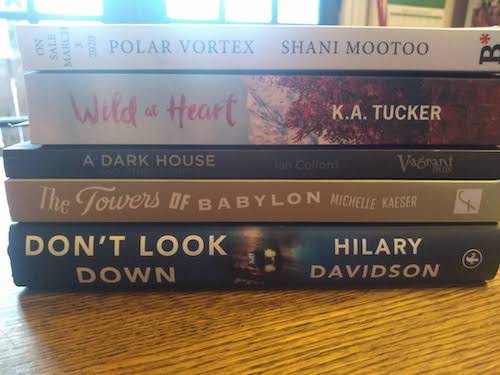
So happy to talk GREAT BOOKS on the radio this morning with the lovely Wei Chen, who even reads the books I recommend. If you missed it live, you can listen again on the podcast. I come in at 35.00.
March 2, 2020
Gleanings
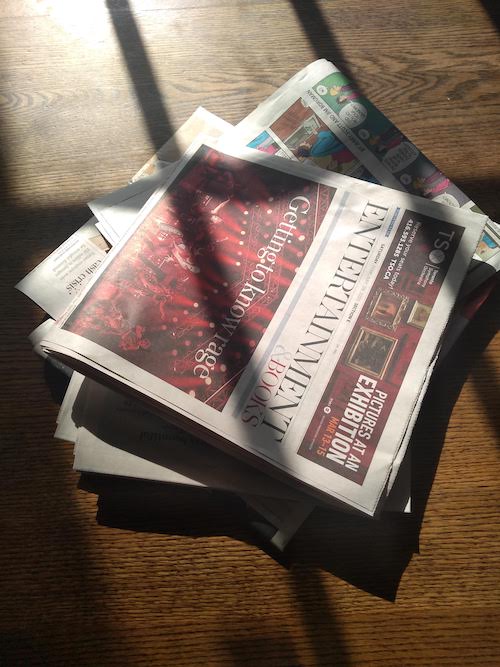
- I like to think of myself, in some ways, as an artist of the everyday.
- “Let it rest” can mean giving the piece an hour, if that’s the deadline. For an essay, a week or a month is better.
- Some moments call for flowers, or a lasagna.
- This is what blogging is about, that we can see each other even when we feel invisible, that through time and space and memory and algorithms, we see each other. We hear each other. That in the quiet, we are briefly together.
- First steps and leap years
- I’ve been keeping a “book” since 2011.
- A long time ago my husband built a hang glider.
- Due to the luck of the draw I was one of the last to be called, and the jury was selected before I was asked to return to court.
- So I’ve developed a kind of short hand for interpreting dating profiles to save me from spending a precious evening suffering through a bad date instead of chocolate-dipping a whole box of strawberries and eating them by myself.
- When people suggest feminism has somehow been a failure, I like to hark back to the world I was born into, the world that made my mother so full of suppressed fury…
Do you like reading good things online and want to make sure you don’t miss a “Gleanings” post? Then sign up to receive “Gleanings” delivered to your inbox each week(ish). And if you’ve read something excellent that you think we ought to check out, share the link in a comment below.
February 28, 2020
The Bug Girl, by Sophia Spencer
The Bug Girl, by Sophia Spencer, with Margaret McNamara, has a very cool backstory—when a young girl with a passion for insects finds herself bullied by peers, her mother reached out to professional entomologists to offer support for the girl, which went viral. And this is how Sophia Spencer became a debut picture book author at the age of 9, but even knowing none of this, there is a lot to love about The Bug Girl. It’s a book about unabashedly being yourself, about pursuing your own avenues and fascinations, and about defying other people who might hold those fascinations against you. The book is sweet and fun, but also an inspiring call to resist peer pressure, and to understand just how great and wondrous the world is—beyond the limits of one’s own community, and also right down to the smallest creatures on earth.
February 28, 2020
Disfigured, by Amanda Leduc
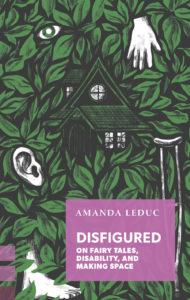
While I was intrigued by the premise of Amanda Leduc’s Disfigured: On Fairy Tales, Disability, and Making Space, I wasn’t anticipating just how interesting I would find the book, as someone who can get through the day (for now, at least) without giving disability a whole lot of thought and who also didn’t grow up with a strong connection to fairy tales, Disneyfied or otherwise. A few years older than Leduc, I was lucky enough to make it out of childhood without ever longing to be Ariel and before the age when Disney started marketing dresses, so that if I’d ever wanted to dress up as a princess, I would have had to design the costume myself— and that is only part of the reason I never did.
But to say that I did not grow up in a culture steeped in the messages and symbolism of fairy tales, steeped in those stories, would be disingenuous, as Leduc makes clear in Disfigured. Because these stories are everywhere, and yes, they’re only stories… but they’re not only stories. And throughout those stories are representations of disability—hands and heads chopped off in Grimms’ tales that magically grow back, and dwarfs, and women without voices, and witches with crutches, hideously disfigured beasts, and changelings, plus fairy godmothers who exist to reverse one’s fortune.
Leduc, who has cerebral palsy, uses her own experiences (and the text includes her own childhood medical records) to tell a story of what it means when happily ever after means learning to live with one’s disability, instead of magically overcoming it—and suggests that what must be overcome is society’s ableism instead. Disfigured is gorgeously written, a fascinating blend of memoir, scholarship and cultural commentary, a quick read that’s also packed with stories about fairy tales and disability, as well as questions and curiosities. It’s the kind of book that illuminates the ordinary and points to possibilities for a better kind of world.
February 26, 2020
I don’t know how to resolve the Wet’suwet’en crisis, and neither do you
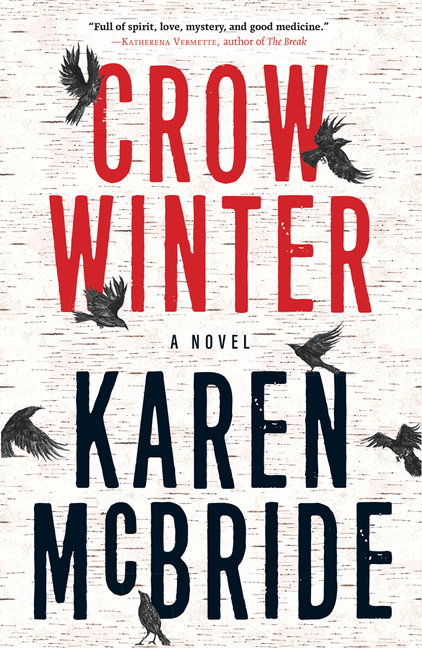
I keep thinking of something Christi_Belcourt tweeted about how impossible big corporations and government make it to resist plans they have every intention of rolling through, which we ought to keep in mind when considering the other First Nations who’ve signed on to the pipeline plan that Hereditary Chiefs of Wet’suwet’en are currently fighting in northern BC. It’s interesting to be reading Karen McBride’s novel Crow Winter as all this is unfolding, the story of a young woman who returms home to Spirit Bear First Nation in Northern Quebec and, with the help of her ancestors and the trickster Nanabush, must stop the development of a mining project on her family’s land. History is not just in the past, but it’s still happening all around us. I vote that every settler with an opinion on what’s happening in Wet’suwet’en just shut up and sit down, and read a novel instead.
